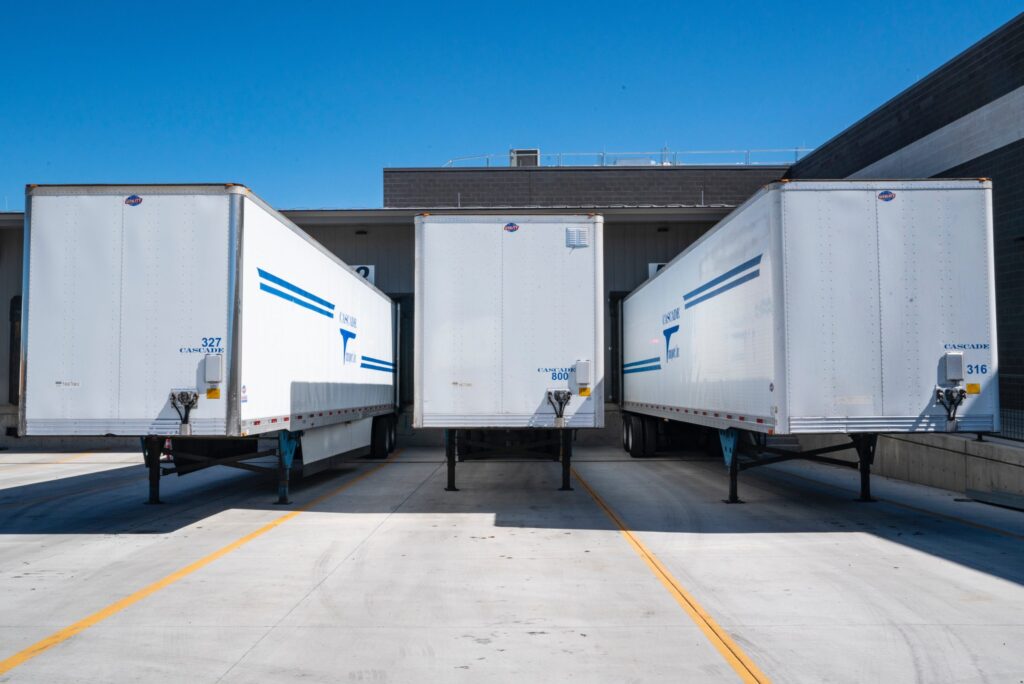
As the world endures the effects of COVID-19 while preparing for the future, the global supply chain continues to operate with reduced staffing and in some cases, quicker product turnaround times. With China playing a large role in the manufacturing industry, other countries are left to pick up the slack and, in some cases, increase their rates of production.
As companies are being forced to adapt swiftly and effectively to these worldwide changes, let’s take a look at how some key industries have had their supply chains affected and how logistics plays a significant role.
Food
With state-by-state orders to shelter in place and self-quarantining becoming more prevalent by the day, consumers are flocking to grocery stores. This increase in grocery store visits and sky-high demand bumps up right into produce season, the highest volume foodservice season. As product flies off the shelves, food shippers are forced to face the severe uptick in demand and not only a lack of product, but a shortage in transportation options.
Packaging
Prior to the COVID-19 epidemic, several packaging companies were hard-focused on creating reusable and sustainable packaging. Now, with higher standards of food products being limited in exposure to as little human contact as possible, these companies have seen a spike in demand for disposable and “hygiene-centric” packaging solutions.
Corrugated packaging is also seeing an uptick in demand. With the necessary goods like food in grocery stores and medical supplies to hospitals, corrugated cardboard boxes are necessary to transport and keep those vital goods safe and sanitary.
Beverage & Bottle
Much like the food industry, beverage and bottling companies are seeing an uptick in demand despite reduced staffs. Many consumers are stocking up on bottled beverages, mostly water, juice, and soft drinks, but also alcohol. Liquor stores have remained open and active with bars and restaurants still being able to offer to-go beverages.
The beverage and bottle industry has taken steps to fight COVID-19 as well. Many states have temporarily ceased bottle returns for recycling purposes to curb the possible spread until experts know more about how long the virus can survive on surfaces. Some alcohol manufacturers have also started making their own sanitation products in the midst of the hand sanitizer shortage.
Medical Supplies
As we’ve continually heard throughout news reports, there is currently a shortage of heavy-duty N95 masks and other similar medical supplies are running scarce. With many of these products being made in China, the country-wide sanctions have made it difficult for medical professionals to get the equipment they need to combat the virus. Because of this, we have seen other companies step up to manufacture medical equipment in lieu of their usual products.
Automotive
COVID-19’s devastation on China has brought some aspects of the automotive industry to a screeching halt, facing manufacturers with a tough decision on ceasing operations. All of the large auto companies, such as Ford, Toyota, Honda, and more have shut down their plants for up to 2-3 weeks for cleaning and disinfecting purposes.
Experts had an original forecast of selling approximately 17 million vehicles in 2020, however, with the plant shutdowns paired with consumers having less disposable income, the new estimation has dipped to somewhere between 13 and 14 million units sold. New vehicle sales have also dipped nearly 30% over the past few weeks, which proves that the auto industry will need some time to bounce back to normal.
Logistics & Its Role Moving Forward
COVID-19 is a large component of supply chain disruptions, but another contributing factor is the decline in truck drivers. Spot rates have increased by over 5% in the last month due to the driver shortage and an increase in product demand. Speculation is that we will face this spike in demand in the short-term, but it depends on how end users can financially bounce back from the current market correction that will dictate the demand throughout the rest of 2020.
FMSCA also waived HOS nationwide for COVID-19 related movement, which will last until April 12 or until the end of the nationwide emergency. This applies to equipment and supplies of food for the emergency restocking of stores.
While supply chains will always vary among industries, one example being seasonality, an unexpected demand spike in various industries paired with driver shortages can lead to a trickling down effect in the logistics industry leading to more problems, such as inflated rates and extended wait times at pickup and delivery sites.
In this time of uncertainty, it’s imperative now more than ever to ensure your product gets from Point A to Point B. Regardless of the circumstances, the logistics industry is pivotal in keeping the country moving. If you need assistance with moving freight during this time, contact us here.
